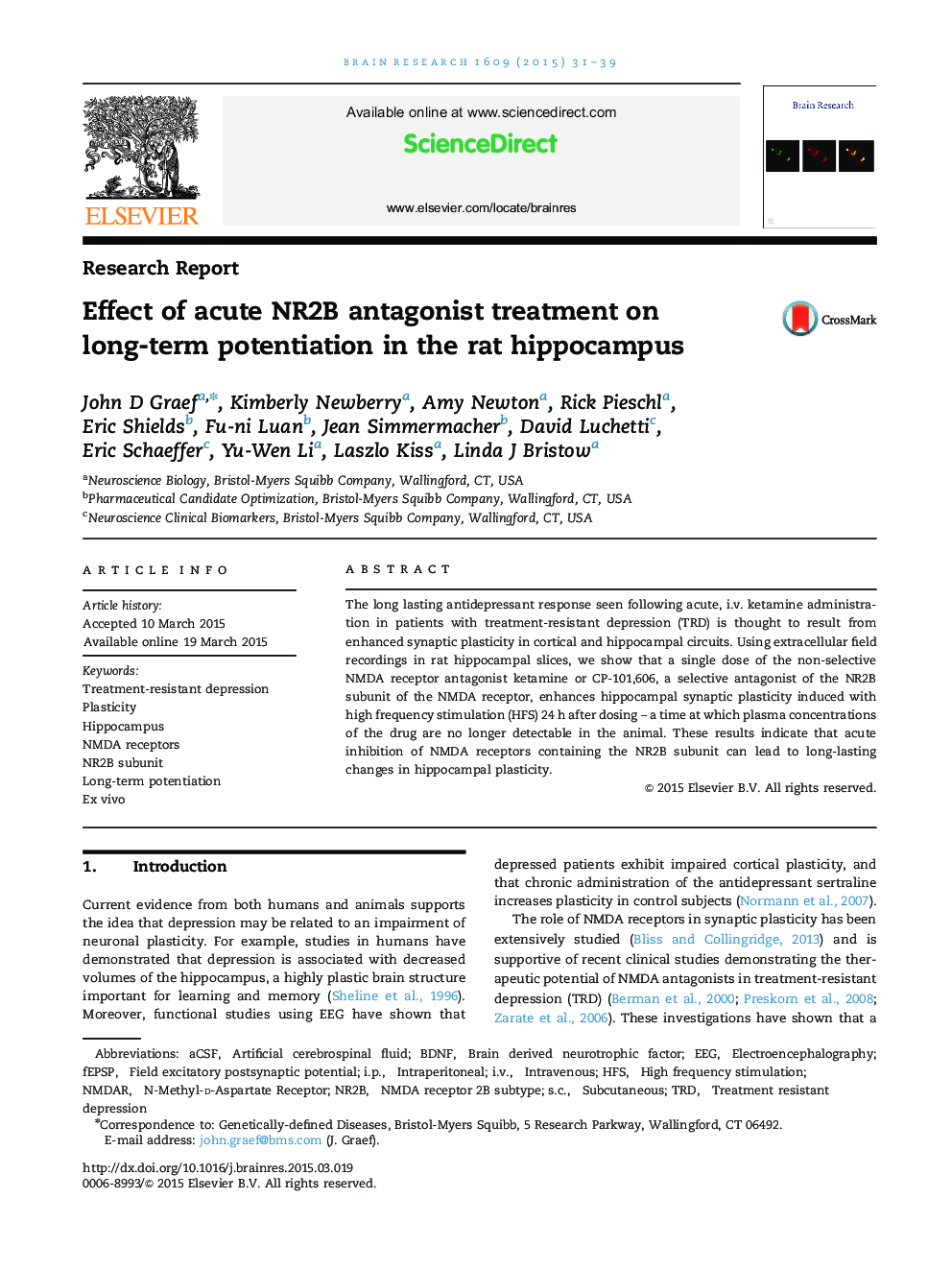| Article ID | Journal | Published Year | Pages | File Type |
|---|---|---|---|---|
| 4323821 | Brain Research | 2015 | 9 Pages |
•The NMDA receptor blocker ketamine enhances hippocampal LTP 24 h post-treatment.•The selective NR2B antagonist CP-101,606 enhances LTP 24 h post-treatment.•Only the enhanced LTP after a single ketamine treatment is maintained for 72 h.
The long lasting antidepressant response seen following acute, i.v. ketamine administration in patients with treatment-resistant depression (TRD) is thought to result from enhanced synaptic plasticity in cortical and hippocampal circuits. Using extracellular field recordings in rat hippocampal slices, we show that a single dose of the non-selective NMDA receptor antagonist ketamine or CP-101,606, a selective antagonist of the NR2B subunit of the NMDA receptor, enhances hippocampal synaptic plasticity induced with high frequency stimulation (HFS) 24 h after dosing – a time at which plasma concentrations of the drug are no longer detectable in the animal. These results indicate that acute inhibition of NMDA receptors containing the NR2B subunit can lead to long-lasting changes in hippocampal plasticity.
